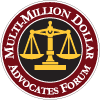Risperdal
There has been a spate of recent litigation relating to the Johnson & Johnson pharmaceutical Risperdal, which is a drug created to treat psychotic disorders in adults. The medicine was created in 1993, and approved by the federal Food and Drug Administration (FDA) for the purpose of treating schizophrenia.
However, in the years since Risperdal’s approval, it has been prescribed by doctors off-label at the encouragement of Johnson & Johnson for a variety of purposes, including for the treatment of autism. There is nothing illegal about doctors prescribing medicines for off-label uses; it is done routinely. However, pharmaceutical companies are not allowed to promote their drugs for off-label uses.
Because of the complexities of mental illness, pharmaceutical companies often promote drugs designed to treat one mental disorder for another, off-label use—the legal and medical grey area is wide enough that, generally, they are able to get away with this practice.
This appears to be what happened in the case of Benita Pledger’s son. Ms. Pledger’s son, who is autistic, was prescribed Risperdal by his neurologist. Despite her reservations about the drug, the doctor assured Ms. Pledger that Risperdal would help with her son’s misbehavior at school and meltdowns at home. So, she filled the prescription, and her son began taking the medication in August 2002 at the age of eight. He stopped taking the medication in April 2007 and is 20 years old now.
Risperdal was not approved for use by children by the FDA until 2006. But Ms. Pledger’s son’s neurologist, Dr. Jan Mathison, has testified that a pharmaceutical representative from Johnson & Johnson’s subsidiary, Janssen, came to his office frequently to promote the use of the drug in children with autism. Dr. Mathison acknowledged that he prescribed the drug more than any other doctor in Alabama, but said that he wanted to get samples to provide for low-income patients.
Unsurprisingly, it is difficult for pharmaceutical companies to get parents to approve of their children’s participation in research trials, so in its attempt to get Risperdal approved for use in autistic children, Ms. Pledger believes that Janssen used the off-label strategy in order to have plenty of subjects for clinical trials.
As it turns out, Risperdal contains prolactin, a hormone found inside the pituitary gland that can cause the growth of breasts in men. This condition is called gynecomastia, which can also occur in girls but is mostly found in men. Ms. Pledger’s son developed this condition after taking Risperdal.
Ms. Pledger was in tears as she recounted her son’s struggle with gynecomastia and heard how the pharmaceutical company had been hiding information relating to the condition in users of Risperdal.
Johnson & Johnson Scores a Victory In Recent Case
In 2013, Johnson & Johnson and its subsidiary were ordered by the Justice Department to pay $2.2 billion to settle a claim in relation to allegations that the company had hid information about Risperdal and gynecomastia.
After losing the first jury trial in Philadelphia this year, however, Johnson & Johnson scored a victory recently when a jury found that Risperdal was not the cause of gynecomastia in another plaintiff, 19-year-old William Cirba of Pennyslvania.
This does not change the fact, though, that there are quite a few Risperdal cases in the legal pipeline. An attorney for the plaintiff, Tom Kline, said that the verdict was a significant setback for the pharmaceutical giant even though no damages were awarded to Cirba. He said that the proof was in the pudding that Janssen had been hiding key information about its drug from doctors and patients.
SOURCES
https://www.reuters.com/article/2015/03/20/johnson-johnson-risperdal-verdict-idUSL2N0WM2IE20150320






